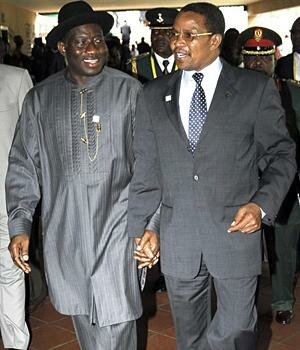Burundi Considers Increasing Troop Strength in Somalia Despite Security Concerns at Home.
 Bartamaha (Nairobi):- Uganda hosted the African Union bi-annual summit in its capital Kampala last week. The focus was supposed to be maternal, infant and child care but the conference ended up focusing on the threat from the Somali militant group al-Shabab, which took credit for bombings in Uganda that killed at least 76 on July 11th. Al-Shabab targeted Uganda because it has troops in Somalia under the African Union. Burundi also has several thousand troops in Somalia and al-Shabab says Burundi is their next target.
Bartamaha (Nairobi):- Uganda hosted the African Union bi-annual summit in its capital Kampala last week. The focus was supposed to be maternal, infant and child care but the conference ended up focusing on the threat from the Somali militant group al-Shabab, which took credit for bombings in Uganda that killed at least 76 on July 11th. Al-Shabab targeted Uganda because it has troops in Somalia under the African Union. Burundi also has several thousand troops in Somalia and al-Shabab says Burundi is their next target.
The African Mission in Somalia now has about 6,200 Ugandan and Burundian troops in war-torn Somalia. The AU is considering sending an additional four thousand troops, from Uganda, Guinea and Djibouti, to combat Al Shabab. Burundi may also deploy as many as 2,500 more soldiers there.
Colonel Gaspard Baratuza, a spokesperson for Burund’s army, said the troop increase will depend on whether other African nations send enough soldiers.
Colonel Baratuza says that if no other country steps forward with the troops and Burundi is asked by the African Union, we will not say no. He says Burundi is going to send additional troops if no other countries are ready to send their troops.
In 2007, Burundi deployed two battalions of soldiers, about 1,700 men, at the African Union’s request. Last summer, it sent another 850 troops. Yet Burundi is one of the poorest nations in the world, with an average annual income of about $300.
Burundi just went through its own civil war, which lasted 13 years and ended in 2006. So Burundi does have enough weapons. But Baratuza was quick to point out that Burundi does not have the military equipment to devote to additional troop deployments.
Baratuza says Burundi has well trained soldiers but for the logistics, is waiting for help from African countries and the international community, the European Union or the United States.
But some in Burundi question whether the country’s troops should be in Somalia at all and whether it can defend itself from an attack by the fundamentalist al-Shabab. In a country of about 10 million, an estimated 10 percent of Burundi’s population is Muslim.
The government says it takes the threat seriously. Security was increased in the run-up to the July 23rd parliamentary elections, with a stronger military and police presence around the capital and more check points on roads throughout the country. Â
Up on a hilltop overlooking the vast green countryside and countless rolling hills, 28-year-old Suleyman Aronge sways from side to side beating a traditional Burundian drum. He and about 20 others are wearing tunics colored red, green and white – the colors of Burundi’s flag.
Aronge lives in Burundi’s countryside, like the majority of the country’s 10 million. He had not even heard that al-Shabab threatened to attack his country. Now that he knows, he said he is still not concerned.
“I am not afraid at all,” Aronge says. “We think that our army is able to stop those attacks. We are confident in our army but we wish that such things never happen in our country,” he says.
In Burundi’s capital, Bujumbura, 22-year-old Gloria Kaneza said increased security has made people “very afraid” and created a sense of fear in the country.
“People are afraid because they don’t when, they don’t know where, they don’t know who, and they don’t know how,” Kaneza said. “And now you just want to stay at home. You don’t want to go anywhere. You don’t want to go to church. You don’t want to go to the market. I can’t believe how we live with that warning of al-Shabab. I hope perhaps they will forget. [laughs]“
Kaneza also said Burundians look at what happened in the United States on September 11th and she questions whether Burundi should risk a terrorist attack by having its troops in Somalia.
After the Kamapala bombings, a Burundian journalist questioned whether Burundi could prevent a similar attack. Jean Claude Kavumbagu was arrested in mid-July and charged with treason, a war-time offense. Human Rights Watch calls the arrest “a big step backward for freedom of expression in Burundi.” His trial started Friday.
Jeremy Ndikumana, the chairman of the ruling CNDD-FDD party, dismissed charges that Burundi does not have the resources to prevent a terrorist attack.
“It’s enough. We’ll do enough,” said Ndikumana. “We know our police and the national defense force are aware of that. So they’re taking all the precautions.”
The army is calling on Burundians to be vigilant and to report abnormal activities.
Burundi’s defense minister has said Somali refugees in Burundi will “have to return” to Somalia unless they help in the fight against terrorists. Army spokesperson Gaspard Baratuza said the army has not put pressure on Somalis in Burundi.
Baratuza says the army had asked for cooperation because it is in everyone’s interest. He says it is for Burundi’s people because the Somalis have received asylum here and cooperation is easy for everyone. He says we did not ask difficult things from them. They are people like any other. They live in a respectful fashion here and they cooperate with us.
Since their deployment in 2007, 29 Burundian soldiers have been killed in Somalia and another 17 have been wounded.
—————————————
Source:-VOA.
Comments
comments
 Calendar
Calendar





































